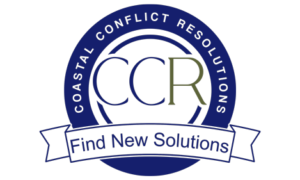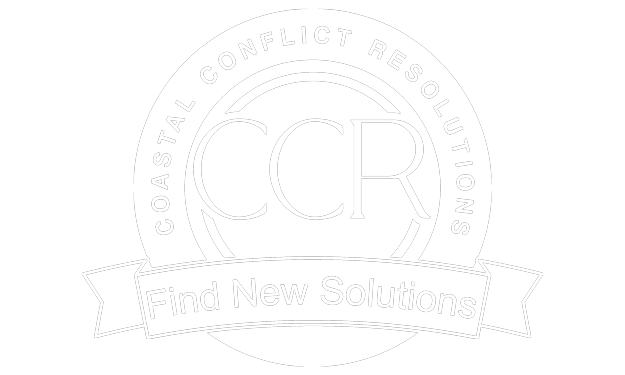Family conflict is a reality many people face at various points in their lives. Whether it involves disagreements between spouses, disputes between parents and children, or conflicts between extended family members, these issues can be emotionally charged and difficult to navigate. When tensions rise, it can seem like there is no clear path forward. However, there is a powerful tool that can help families find common ground and resolve their issues peacefully: mediation.
Mediation provides a structured environment where a neutral third party, known as the mediator, helps guide family members through their conflict in a way that encourages cooperation, open communication, and mutually beneficial solutions.
If you are facing a family dispute and want to reach a fair and respectful agreement, mediation can be an excellent choice. Reach out to Coastal Conflict Resolutions at (843) 273-0029 to begin your journey toward resolution through professional mediation services.
 What is Mediation in Family Conflicts?
What is Mediation in Family Conflicts?
Mediation is a process where a neutral third-party professional helps parties in conflict reach a mutually agreeable solution. Unlike a judge or a court official who imposes a decision, a mediator facilitates communication between the parties and helps them explore potential solutions in a constructive, non-confrontational manner.
When it comes to family conflicts, mediation can be particularly effective. These types of disputes often involve deep emotional investments, and resolving them requires more than just finding a solution—it requires creating a space where all parties feel heard, understood, and respected. Mediation helps families engage in honest conversations and work collaboratively toward resolutions that serve everyone involved.
Mediation can address a wide variety of family disputes, including:
- Divorce and separation agreements
- Child custody and parenting time
- Child support and financial arrangements
- Elder care and family caregiving disputes
- Property division
- Sibling disputes
The role of the mediator in these situations is to manage the conversation, help identify key issues, suggest compromises, and ultimately assist the family in reaching a resolution that is agreeable to all parties.
What Does it Mean to Mediate a Family?
To mediate a family means to guide family members through their conflict and help them communicate effectively, so they can reach an agreement on the issues at hand. It is more than just negotiating terms—it is about creating a supportive environment where every individual has the opportunity to express their feelings, concerns, and priorities in a constructive way.
Mediation in a family context involves helping each family member understand the other party’s perspective. The goal is not to determine who is “right” or “wrong,” but to find a solution that works for everyone, even if it requires compromise. The mediator’s role is to facilitate understanding and foster cooperation between family members who may be struggling to communicate due to emotional barriers.
At its core, family mediation is about preserving relationships while resolving conflicts. The mediator encourages mutual respect and works to create an environment where all parties can express their needs without fear of judgment or hostility. In situations where family members may feel emotionally overwhelmed, the mediator serves as a calm, neutral presence that encourages thoughtful and respectful dialogue.
The Role of a Mediator in Resolving Family Conflicts
A mediator in family conflict resolution plays several key roles to ensure that the mediation process is effective and productive. Below are some of the most important roles a mediator fills when guiding family members through conflict.
1. Neutral Third Party
One of the most important roles of the mediator is to remain neutral. This means that the mediator does not take sides or favor one family member over another. Their role is to create an unbiased environment where all voices can be heard. The mediator ensures that everyone has an opportunity to speak and that no one is unfairly dominant in the conversation. This neutrality is essential for building trust among the parties and ensuring that the mediation process is fair.
2. Facilitator of Communication
Effective communication is often at the heart of resolving family disputes. Family members involved in a conflict may have trouble expressing themselves clearly or listening to each other due to emotions, misunderstandings, or entrenched positions. The mediator helps facilitate open and respectful communication. They may encourage each family member to express their concerns, and help clarify statements or issues that may be misunderstood. This open communication helps break down barriers and create an atmosphere of cooperation.
In family conflicts, particularly those involving long-standing issues, emotions can run high. The mediator helps keep the conversation on track, ensuring that it remains constructive and focused on resolving the underlying issues rather than escalating the conflict.
3. Conflict Manager
Family conflicts often involve intense emotions and can become heated. A mediator helps manage these conflicts by keeping emotions in check and guiding the conversation toward productive dialogue. When tempers flare, the mediator helps calm the situation, reminding participants of the goal: to reach a resolution that is beneficial for all involved. The mediator can also redirect conversations that become unproductive or veer off-course.
A key part of this role is managing expectations. The mediator helps family members understand that while mediation can be a powerful tool for resolution, it may not result in an immediate “perfect” solution. The goal is progress and mutual agreement, not perfection. By helping the family focus on this, the mediator reduces frustration and fosters an environment of patience and cooperation.
4. Problem Solver and Solution Generator
The mediator’s role extends beyond simply facilitating the conversation; they also help guide family members toward solutions. While the mediator does not impose decisions, they encourage creative thinking and offer potential solutions. The mediator may suggest compromise options or alternative approaches to solving a particular issue, but the final decision is always in the hands of the family members.
For example, in child custody disputes, the mediator might suggest co-parenting arrangements that consider the needs and desires of both parents as well as the best interests of the child. By offering possible solutions, the mediator helps families explore different ways of addressing their issues, ultimately empowering the family to choose the option that works best for them.
5. Keeper of the Process
Throughout the mediation process, the mediator ensures that the session progresses smoothly and that the process stays on track. This includes scheduling meetings, maintaining the timeline, and following up on any unresolved issues. The mediator may summarize what has been agreed upon, clarify any remaining points, and help structure the discussion in a way that moves toward an agreement. This level of organization is critical for keeping the family engaged and focused throughout the process.
6. Educator and Informational Resource
While mediators are not there to give legal advice, they are often a valuable resource in terms of helping family members understand their rights and responsibilities. Mediators may provide general information about the laws and regulations that apply to the issues being discussed, helping families make informed decisions. In some cases, the mediator may even provide insight into common practices for resolving family issues, which can guide family members toward realistic and workable solutions.
However, it’s important to remember that the mediator’s role is to educate in a neutral manner, without pushing any particular solution or course of action. Their job is to ensure that all family members are fully informed, allowing them to make the best possible decisions for themselves.
Why Choose Mediation for Family Conflicts?
Family mediation offers several key benefits compared to traditional conflict resolution methods like court hearings or litigation. Here are just a few reasons why mediation can be the ideal choice for resolving family disputes:
- Cost-Effective: Mediation is typically far less expensive than going to court, making it an affordable solution for families facing financial difficulties.
- Time-Efficient: Mediation is usually a faster process than court proceedings, allowing families to resolve their disputes more quickly.
- Confidential: Mediation is a private process, meaning the details of your conflict won’t become public record.
- Control: Unlike court decisions, mediation allows the family members to take control of the outcome, making it more likely they will stick to the agreement.
- Preserves Relationships: Mediation helps preserve family relationships by encouraging communication and understanding, which is particularly important when children are involved.
Get Started with Coastal Conflict Resolutions
If you are facing a family conflict and want to reach an agreement through mediation, Coastal Conflict Resolutions is here to help. Their professional mediators are highly experienced in resolving family disputes and will work with you to ensure a fair and respectful outcome. The mediation process can provide you with the tools and support needed to restore harmony in your family, whether it’s resolving child custody issues, financial disagreements, or any other family dispute.
To start the mediation process and schedule a consultation, call (843) 273-0029 today. Coastal Conflict Resolutions is ready to help you navigate the path to peace and cooperation in your family.




